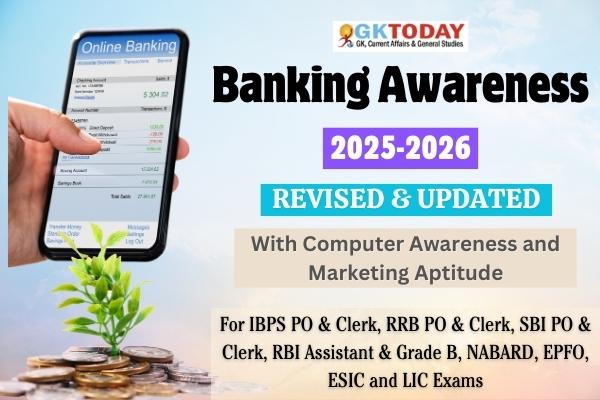Banking & General Financial Awareness
Banking & General Financial Awareness Multiple Choice Questions (MCQs) and Answers with explanation for All Banking Exams of 2024-25 such as IBPS Bank PO, IBPS Bank Clerical, RRB PO and Clerical, SBI PO and SBI Clerical, IBPS Recruitments, RBI Grade B and RBI Banking Examinations.
41. Which regulatory body oversees the primary market in India?
[A] Reserve Bank of India (RBI)
[B] Ministry of Finance
[C] Securities and Exchange Board of India (SEBI)
[D] Insurance Regulatory and Development Authority (IRDAI)
Show Answer
Correct Answer: C [Securities and Exchange Board of India (SEBI)]
Notes:
SEBI is responsible for regulating and overseeing the primary market, ensuring fair practices and investor protection during the issuance of securities.
42. Which of the following represents raising capital through the private placement of securities?
[A] Issuing securities to the public
[B] Issuing securities to a select group of investors
[C] Issuing shares through a stock exchange
[D] Issuing government bonds
Show Answer
Correct Answer: B [Issuing securities to a select group of investors]
Notes:
Private placement refers to the sale of securities to a select group of investors, often institutions, rather than to the general public.
43. Who are the primary participants in the Indian debt market?
[A] Government and financial institutions
[B] Retail investors only
[C] Mutual funds only
[D] Private equity firms
Show Answer
Correct Answer: A [Government and financial institutions]
Notes:
The primary participants in the Indian debt market are the government, financial institutions, banks, and corporations.
44. What does “dividend yield” indicate?
[A] The annual dividend per share as a percentage of the stock’s market price
[B] The annual dividend as a percentage of the company’s revenue
[C] The total dividend paid by a company in a year
[D] The difference between a stock’s market price and its book value
Show Answer
Correct Answer: A [The annual dividend per share as a percentage of the stock’s market price]
Notes:
Dividend yield is a financial ratio that shows how much a company pays out in dividends each year relative to its stock price, calculated as (Annual Dividend / Current Stock Price) × 100.
45. Which of the following sectors was the first to be nationalized in India?
[A] Life Insurance
[B] General Insurance
[C] Banking
[D] Mutual Funds
Show Answer
Correct Answer: A [Life Insurance]
Notes:
The life insurance sector was the first to be nationalized in 1956.
46. Unit Linked Insurance Plans (ULIPs) are a combination of:
[A] Life insurance and mutual funds
[B] Health insurance and pension plans
[C] Motor insurance and travel insurance
[D] Property insurance and marine insurance
Show Answer
Correct Answer: A [Life insurance and mutual funds]
Notes:
ULIPs offer life insurance along with investment options, where a part of the premium is invested in mutual fund-like instruments.
47. A group health insurance policy is primarily designed for:
[A] Families
[B] Individuals
[C] Employees of an organization
[D] Self-employed individuals
Show Answer
Correct Answer: C [Employees of an organization]
Notes:
Group health insurance policies are designed to provide coverage to employees of an organization, offering medical benefits.
48. Which of the following is a life insurance company in India?
[A] New India Assurance
[B] United India Insurance
[C] LIC of India
[D] Oriental Insurance
Show Answer
Correct Answer: C [LIC of India]
Notes:
LIC of India is a life insurance company, whereas New India Assurance, United India Insurance, and Oriental Insurance are general insurance companies.
49. Which of the following sections of the Income Tax Act in India provides a deduction for investments made in Public Provident Fund (PPF)?
[A] Section 24
[B] Section 80C
[C] Section 10
[D] Section 54
Show Answer
Correct Answer: B [Section 80C]
Notes:
Under Section 80C of the Income Tax Act, investments in Public Provident Fund (PPF) are eligible for a deduction of up to INR 1.5 lakh per financial year.
50. Which term refers to a financial strategy that ensures individuals have sufficient income after retirement?
[A] Tax Planning
[B] Retirement Planning
[C] Estate Planning
[D] Risk Management
Show Answer
Correct Answer: B [Retirement Planning]
Notes:
Retirement planning is a financial strategy aimed at ensuring individuals have sufficient income and resources to maintain their lifestyle after retirement.

